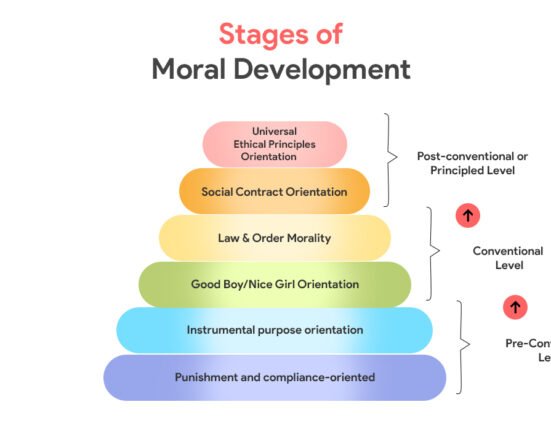Stoicism is an ancient Greek philosophy founded in the 3rd century BC that focuses on how to live a good life by cultivating wisdom, courage, justice, and self-control. In recent years, Stoicism has seen a resurgence in popularity as a practical framework for mental health and emotional resilience. The core principles of Stoicism – which include living according to reason and virtue, focusing on what you can control, and facing challenges with courage and perspective – align closely with techniques in modern cognitive behavioural therapy (CBT). This article will provide an overview of how Stoic philosophy and practices can benefit mental health.
Focusing on What You Can Control
A fundamental teaching of Stoicism is differentiating between what we can control and what we cannot. As Epictetus, one of the most influential Stoic philosophers stated: “Some things are within our power, while others are not.” Stoics believe that much of human unhappiness stems from placing too much value and focus on external events, situations, and people that we cannot control. Instead, we should direct our energy toward our thoughts, attitudes, and actions over which we have agency. Research in psychology supports this view, finding that having an internal locus of control is associated with better mental health outcomes (Nowicki et al., 2018). Practising Stoic mindfulness around areas of choice and control can alleviate anxiety, stress, and depression.
Cultivating Mental Toughness
Stoics engage in reflectiveness and continuous self-improvement to develop resilience and mental fortitude. They trained to endure hardship and privation without complaint, a mindset summed up in the quote “The cucumber is bitter? Then throw it out. Are there briars in your path? Then go around. That is enough. Do not complain” (Aurelius, Meditations, 8.50). While modern life is much more comfortable, practising voluntary discomfort and overcoming the tendency to avoid or catastrophize problems breeds confidence to handle life’s inevitable difficulties. Research finds that mental toughness can act as a buffer against psychiatric symptoms (Gerber et al., 2018). Incorporating Stoic keys to resilience like managing expectations, reframing obstacles, and avoiding dramatisation can boost mental health.
Read More: Theories of Intelligence in Psychology
Applying Negative Visualisation
The Stoic exercise of negative visualisation entails imagining worst-case scenarios unfolding to appreciate what one has and mentally prepare for hardship. Studies demonstrate this pessimism helps regulate emotions and expectations for later disappointment (Wenze et al., 2009). By contemplating loss regularly (of health, wealth, loved ones), we can let go of attachments and gain perspective. Though sounding counterintuitive, negative visualisation strangely alleviates anxiety and fear about losing the things we enjoy. Reflecting on how little we ultimately need to be content is centring. Engaging in this cognitive behaviour modelling promotes adaptation skills and sound mental health.
Read More: How Emotional Intelligence Plays an Important Role in Your Life
Pursuing Virtue and Wisdom
The ultimate aim of Stoicism is cultivating excellence of character and virtue (arête) through living rationally and socially responsibly. Stoics identified four main virtues: practical wisdom (self-control, moderation), justice (fairness, citizenship), courage (endurance, resilience), and temperance (humility, modesty) which align with modern moral values. They believed the ideal person exhibits practical wisdom about what brings eudaimonia (human flourishing) while contributing to the greater good of humanity.
Read More: Suicide Awareness: Unveiling the Truth
Research links virtuous behaviours like compassion, gratitude, and forgiveness not only to positive social relations but also to reduced anxiety, depression, and suicidal behaviours (Toussaint et al., 2016). Practising Stoic virtues offers meaning and purpose that transcends chasing wealth, fame, or pleasure.
Cognitive Distancing and Framing
Stoic philosophers frequently wrote of adapting judgement rather than reality. This method of cognitive distancing entails reframing situations more objectively and less emotionally to regulate upset. The practice quiets the limbic system’s threat response allowing the rational prefrontal cortex to contextualise challenges as temporary and manageable. Studies demonstrate cognitive reappraisal techniques like self-distancing reduce depression, anxiety, and stress reactivity in challenging situations thus improving mental health outcomes (Diedrich et al., 2016). This aligns with the Stoic wisdom that “Our actions may be impeded…but there can be no impeding our intentions or dispositions. Because we can accommodate and adapt. The mind adapts and converts to its purposes the obstacle to our acting”
Read More: The Psychology Behind Dedication
For Stoics, the optimal state of well-being (eudaimonia) stems from pursuing excellence of character itself rather than fleeting pleasures (Stephens, 2022). Flow and fulfilment arise when we act virtuously, rather than relying on unstable external conditions for happiness. Aligning ideals and actions creates an inner steadiness not contingent on circumstances. Mindfulness aligns neatly with key Stoic techniques for sustaining well-being (Robertson, 2010). These include objective self-monitoring to catch automatic reactions plus cognitive distancing to shift unhelpful perspectives. Together, such skills increase self-awareness, boosting psychological flexibility and more thoughtful responses.
Read More: What is Mindfulness-Based Cognitive Therapy?
Summing Up
Modern research has validated much of the psychological wisdom embedded in ancient Stoic philosophy. Practising its teachings around self-control, resilience, virtue, and perspective offers a pragmatic framework for tackling mental health struggles related to motivation, addiction, anxiety, depression, and more.
Read More: 8 Reasons You Underestimate Yourself: How Should You Tackle Them?
Incorporating exercises like negative visualisation, cognitive distancing, and focusing on controllable, along with pursuing qualities like courage, justice and practical wisdom can help develop emotional regulation skills and resilience. The stoic view aligns with psychiatric theories on establishing healthy coping strategies, strong support systems and creating meaning. With its rise in the public discourse, both clinical fields and individuals can look to this old doctrine for usable methods to better modern mental health.
References +
- Aurelius, M., & Hicks, S. (2022). The Meditations: The Wisdom of Marcus Aurelius. London: Arcturus Publishing Limited.
- Bryant, F., Smart, C., & King, S. (2018). The Quirkology Classic Psychology Experiment Book. London: Quirk Books.
- Greenhoot, A., & Danhauer, S. (2013). Trauma exposure, posttraumatic stress disorder, and posttraumatic growth among American Red Cross disaster workers responding to the September 11, 2001, Attacks. The Journal of Positive Psychology, 8(4), 299-304. https://doi.org/10.1080/17439760.2013.795877
- Hays, G. (2002). How to be a Stoic. New York Magazine. Retrieved from https://nymag.com/nymetro/news/culture/features/n_7912/
- Holowchak, M. (2018). Stoicism as a philosophy of life. The Journal of Value Inquiry, 52(1), 17-29. http://dx.doi.org/10.1007/s10790-016-9588-x
- Irvine, W. (2009). A guide to the good life. New York: Oxford University Press. Nedoncelle, K. (2014). The stoic art of living: Inner resilience and outer results. Charleston, SC: Advantage.
- Robertson, D. (2010). The philosophy of cognitive-behavioural therapy (CBT): Stoic philosophy as rational and cognitive psychotherapy. London: Karnac Books.
- Robertson, D. (2022). Stoicism and the art of happiness: Practical wisdom for everyday life (2nd edition). London: Rider Books.
- Stephens, W. (2022). Stoicism: Understanding the ancient source of mindfulness, virtue, & happiness. [Audiobook]. PhilosophersNotes.













Leave feedback about this